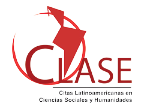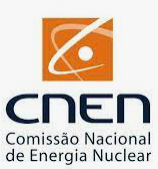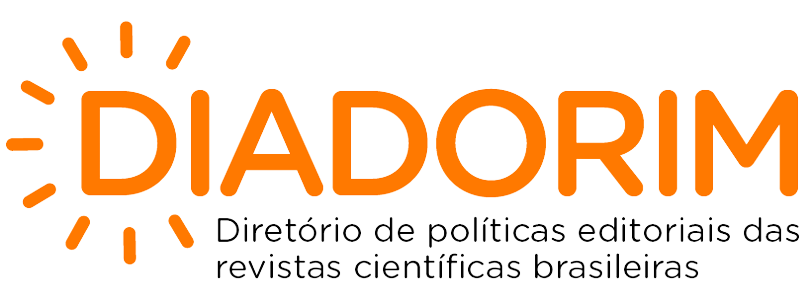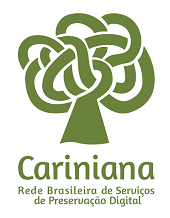“The service of Gog and my”: The formation on the scholar in the Portuguese Emprire the reign of João III
DOI:
https://doi.org/10.5433/2238-3018.2021v27n1p351Keywords:
University of coimbra, Formation of the schola, Regal patronage, Christian religiosity, Control mechanismAbstract
At work we have the goal of treating on the reform undertaken at the University of Coimbra during the reign of João III (1521-1557). We plan to highlight the relationship between institutional reform and the spread of the Catholic faith in the Empire by the formation of the literati. Through the methodological contributions of Elias (1994) and Paiva (2012) we seek to score the social role of the University as an institution formed by individuals entered within a social context marked by the Christian religiosity of the 16th century. We conjecture that the reform of the University of Coimbra in the reign of D. João III can be related to the proposal to form the profile of a new literate, the literate that could contribute, through the actions performed in the extension of Portuguese possessions from overseas, in the conservation, maintenance and expansion of that form of society organized and conducted by Regal Patronage. In addition, the reform of the University can be understood as a mechanism of control of the royal absolutism of the period.Downloads
Download data is not yet available.
References
ACTAS DOS CONSELHOS DA UNIVERSIDADE DE 1537 A 1557. Publicado por Mário Brandão. Coimbra: A. U. C., 1941. v. 1
ACTAS DOS CONSELHOS DA UNIVERSIDADE DE 1537 a 1557. Publicado por Mário Brandão. Coimbra: A.U. C., 1951. v. 1, pt 1.
ACTAS DOS CONSELHOS DA UNIVERSIDADE DE 1537 A 1557. Publicado por Mário Brandão. Coimbra: A.U. C., 1955. v. 2, pt 2
ACTAS DOS CONSELHOS DA UNIVERSIDADE DE 1537 A 1557. Volume II, Parte III. Publicado por Mário Brandão. Coimbra: A.U. C.,1969.
BLOCH, M. Apologia da História, ou o ofício de historiador. Trad. de André Telles. Rio de Janeiro: Jorge Zahar, 2001.
CASTANHEDA, Fernão Lopes de. História do descobrimento e conquista da Índia pelos Portugueses. Edição de (1554). Typografhia Rollandiana (1833). Livro 6. Disponível em: https://archive.org/details/historiadodescob01castuoft. Acesso em: 25. abr. 2017.
COSTA, Célio Juvenal. O rei D. João III (1521-1557) e a construção da Sociedade de Corte em Portugal, 2014. Disponível em: www.uel.br/grupo-estudo/processoscivilizadores/.../Celio_Juvenal_Costa.pdf Acesso em: 15. abr. 2015
DIAS, José Sebastião da Silva. A política cultural da época de D. João III. Coimbra: Universidade de Coimbra, 1969. v.2
DIAS, José Sebastião da Silva. Os descobrimentos e a problemática cultural do século XVI. Porto: Editorial Presença, 1982.
DOCUMENTOS DE D. JOÃO III. Publicado por Mário Brandão. Coimbra, 1937. v. 1.
DOCUMENTOS DE D. JOÃO III. . Publicado por Mário Brandão. Coimbra, 1938. v. 2
DOCUMENTOS DE D. JOÃO III. Publicado por Mário Brandão. Coimbra, 1939. v. 3
DOCUMENTOS DE D. JOÃO III. Publicado por Mário Brandão. Coimbra, 1941. v. 4
ELIAS, Norbert. O processo civilizador: formação do Estado e civilização. Traduação: Ruy Jungmann; revisão, apresentação e notas, Renato Janine Ribeiro. Rio de Janeiro: Jorge Zahar, 1993. v. 2.
ELIAS, Norbert. A sociedade dos indivíduos. Organizado por Michel Schroter. Tradução: Vera Ribeiro. Rio de Janeiro: Zahar, 1994.
ELIAS, Norbert. O processo civilizador: um história dos costumes. Tradução: Ruy Jungmann; revisão e apresentação Renato Janine Ribeiro. 2.ed. Rio de Janeiro: Zahar, 2011. v. 1
ESTATUTOS DA UNIVERSIDADE DE COIMBRA (1559) com introdução e notas históricas e críticas de Serafim Leite. Coimbra: Por Ordem da Universidade, 1963.
FONSECA, Fernando Taveira. As finanças (Universidade de Coimbra). IN: HISTÓRIA DA UNIVERSIDADE EM PORTUGAL (1537-1771). Coimbra: Universidade de Coimbra e Fundação Calouste Gulbenkian, 1997a. v. 1, t. 2
FONSECA, Fernando Taveira. Universidade de Coimbra. IN: HISTÓRIA DA UNIVERSIDADE EM PORTUGAL (1537-1771). Coimbra: Universidade de Coimbra e Fundação Calouste Gulbenkian, 1997b. v. 1, t. 2
MAGALHÃES, Joaquim Romero. A Universidade e a Inquisição. IN: HISTÓRIA DA UNIVERSIDADE EM PORTUGAL (1537-1771). Coimbra: Universidade de Coimbra e Fundação Calouste Gulbenkian, 1997. v.1, t.2
OLIVEIRA, Antonio. O quotidiano da academia. IN: HISTÓRIA DA UNIVERSIDADE EM PORTUGAL (1537-1771). Coimbra: Universidade de Coimbra e Fundação Calouste Gulbenkian, 1997. v.1, t. 2
PAIVA, José Maria. Religiosidade e cultura brasileira séculos XVI-XVII. Prefácio Célio Juvenal Costa. Maringá: Eduem, 2012.
PAIVA, José Maria. Igreja e educação no Brasil colonial. In: STEPHANOU, Maria; BASTOS, Maria Helena Câmara. Histórias e memórias da educação no Brasil. Séculos XVI-XVIII. Petrópolis: Vozes, 2004. v. 1
RAMALHO, Américo da Costa. O humanismo (Depois de 1537). IN: HISTÓRIA DA UNIVERSIDADE EM PORTUGAL (1537-1771). Coimbra: Universidade de Coimbra e Fundação Calouste Gulbenkian, 1997. v. 1, t. 2
RAMOS, Luís Antonio de Oliveira. A Universidade de Coimbra. IN: HISTÓRIA DA UNIVERSIDADE EM PORTUGAL (1537-1771). Coimbra: Universidade de Coimbra e Fundação Calouste Gulbenkian, 1997. v. 1, t. 2
SUBTIL, José. Legistas e canonistas. IN: HISTÓRIA DA UNIVERSIDADE EM PORTUGAL (1537-1771). Coimbra: Universidade de Coimbra e Fundação Calouste Gulbenkian, 1997. v. 1, t. 2
ACTAS DOS CONSELHOS DA UNIVERSIDADE DE 1537 a 1557. Publicado por Mário Brandão. Coimbra: A.U. C., 1951. v. 1, pt 1.
ACTAS DOS CONSELHOS DA UNIVERSIDADE DE 1537 A 1557. Publicado por Mário Brandão. Coimbra: A.U. C., 1955. v. 2, pt 2
ACTAS DOS CONSELHOS DA UNIVERSIDADE DE 1537 A 1557. Volume II, Parte III. Publicado por Mário Brandão. Coimbra: A.U. C.,1969.
BLOCH, M. Apologia da História, ou o ofício de historiador. Trad. de André Telles. Rio de Janeiro: Jorge Zahar, 2001.
CASTANHEDA, Fernão Lopes de. História do descobrimento e conquista da Índia pelos Portugueses. Edição de (1554). Typografhia Rollandiana (1833). Livro 6. Disponível em: https://archive.org/details/historiadodescob01castuoft. Acesso em: 25. abr. 2017.
COSTA, Célio Juvenal. O rei D. João III (1521-1557) e a construção da Sociedade de Corte em Portugal, 2014. Disponível em: www.uel.br/grupo-estudo/processoscivilizadores/.../Celio_Juvenal_Costa.pdf Acesso em: 15. abr. 2015
DIAS, José Sebastião da Silva. A política cultural da época de D. João III. Coimbra: Universidade de Coimbra, 1969. v.2
DIAS, José Sebastião da Silva. Os descobrimentos e a problemática cultural do século XVI. Porto: Editorial Presença, 1982.
DOCUMENTOS DE D. JOÃO III. Publicado por Mário Brandão. Coimbra, 1937. v. 1.
DOCUMENTOS DE D. JOÃO III. . Publicado por Mário Brandão. Coimbra, 1938. v. 2
DOCUMENTOS DE D. JOÃO III. Publicado por Mário Brandão. Coimbra, 1939. v. 3
DOCUMENTOS DE D. JOÃO III. Publicado por Mário Brandão. Coimbra, 1941. v. 4
ELIAS, Norbert. O processo civilizador: formação do Estado e civilização. Traduação: Ruy Jungmann; revisão, apresentação e notas, Renato Janine Ribeiro. Rio de Janeiro: Jorge Zahar, 1993. v. 2.
ELIAS, Norbert. A sociedade dos indivíduos. Organizado por Michel Schroter. Tradução: Vera Ribeiro. Rio de Janeiro: Zahar, 1994.
ELIAS, Norbert. O processo civilizador: um história dos costumes. Tradução: Ruy Jungmann; revisão e apresentação Renato Janine Ribeiro. 2.ed. Rio de Janeiro: Zahar, 2011. v. 1
ESTATUTOS DA UNIVERSIDADE DE COIMBRA (1559) com introdução e notas históricas e críticas de Serafim Leite. Coimbra: Por Ordem da Universidade, 1963.
FONSECA, Fernando Taveira. As finanças (Universidade de Coimbra). IN: HISTÓRIA DA UNIVERSIDADE EM PORTUGAL (1537-1771). Coimbra: Universidade de Coimbra e Fundação Calouste Gulbenkian, 1997a. v. 1, t. 2
FONSECA, Fernando Taveira. Universidade de Coimbra. IN: HISTÓRIA DA UNIVERSIDADE EM PORTUGAL (1537-1771). Coimbra: Universidade de Coimbra e Fundação Calouste Gulbenkian, 1997b. v. 1, t. 2
MAGALHÃES, Joaquim Romero. A Universidade e a Inquisição. IN: HISTÓRIA DA UNIVERSIDADE EM PORTUGAL (1537-1771). Coimbra: Universidade de Coimbra e Fundação Calouste Gulbenkian, 1997. v.1, t.2
OLIVEIRA, Antonio. O quotidiano da academia. IN: HISTÓRIA DA UNIVERSIDADE EM PORTUGAL (1537-1771). Coimbra: Universidade de Coimbra e Fundação Calouste Gulbenkian, 1997. v.1, t. 2
PAIVA, José Maria. Religiosidade e cultura brasileira séculos XVI-XVII. Prefácio Célio Juvenal Costa. Maringá: Eduem, 2012.
PAIVA, José Maria. Igreja e educação no Brasil colonial. In: STEPHANOU, Maria; BASTOS, Maria Helena Câmara. Histórias e memórias da educação no Brasil. Séculos XVI-XVIII. Petrópolis: Vozes, 2004. v. 1
RAMALHO, Américo da Costa. O humanismo (Depois de 1537). IN: HISTÓRIA DA UNIVERSIDADE EM PORTUGAL (1537-1771). Coimbra: Universidade de Coimbra e Fundação Calouste Gulbenkian, 1997. v. 1, t. 2
RAMOS, Luís Antonio de Oliveira. A Universidade de Coimbra. IN: HISTÓRIA DA UNIVERSIDADE EM PORTUGAL (1537-1771). Coimbra: Universidade de Coimbra e Fundação Calouste Gulbenkian, 1997. v. 1, t. 2
SUBTIL, José. Legistas e canonistas. IN: HISTÓRIA DA UNIVERSIDADE EM PORTUGAL (1537-1771). Coimbra: Universidade de Coimbra e Fundação Calouste Gulbenkian, 1997. v. 1, t. 2
Downloads
Published
2021-08-16
How to Cite
Nascimento-Guaraldo, L. de A., Costa, C. J., & Menezes, S. L. (2021). “The service of Gog and my”: The formation on the scholar in the Portuguese Emprire the reign of João III. História & Ensino, 27(1), 351–373. https://doi.org/10.5433/2238-3018.2021v27n1p351
Issue
Section
História da Educação
License
História & Ensino adota a licença CC-BY esta licença permite que os reutilizadores distribuam, remixem, adaptem e criem a partir do material em qualquer meio ou formato, desde que a atribuição seja dada ao criador. A licença permite o uso comercial.














